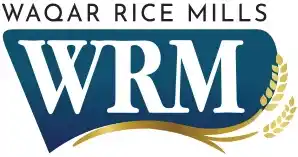Home » Complianced Rice Manufacturer in Pakistan: Leading the Way
Worldwide consumption of rice makes quality and compliance inspections obligatory. To ensure the preservation of rice flavor and aroma, Millers like Waqar Rice follow regulatory compliance from harvesting to packaging and supply. Keeping a continuous commitment to operations, quality, and the latest technology, Waqar Rice Mills stands as the top complianced rice manufacturer in Pakistan, covering a major part of global rice exports.
To emphasize, this blog is about how rice manufacturers in Pakistan can be compliant and how the market leaders ensure that they uphold the right standards.
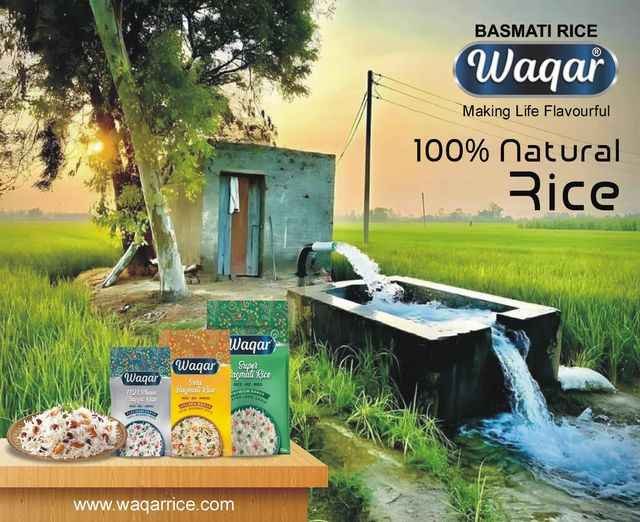
What Does “Complianced Rice Manufacturer in Pakistan” Mean?
Pakistan has established certain quality criteria related to food safety, labor laws, environmental sustainability, and quality control. Any company milling/processing, storing, and exporting rice must have adhered to these compliance standards. These quality standards help make recommendations that guarantee that the rice produced is clean of unwanted components and adequately nutritious. Additionally, compliance entails observing environmental national and international standards to reduce the effects of manufacturing processes on the environment.
Key Certifications for Complianced Rice Manufacturers
To be recognized as compliant rice manufacturers, companies must adhere to several key standards for export markets, including America, Europe, and the Middle East. These certifications ensure that rice products meet international quality, safety, and environmental standards. Key certifications include:-
ISO Certifications (ISO 22000):
This certification ensures the use of an effective rice safety management system to comply with international standards for quality and safety and prevent foodborne hazards.

-
Quality Management Systems (ISO 9001):
ISO 9001 is the world’s most recognized quality management standard. It ensures that companies have robust quality management systems (QMS) in place to deliver products that meet customer and regulatory requirements consistently.
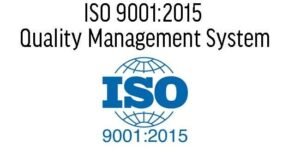
-
Hazard Analysis and Critical Control Points (HACCP):
During the rice production process, ensure the implementation of a robust HACCP system for thoroughly identifying and controlling potential hazards.

-
British Retail Consortium Certification (BRC):
The BRC certification helps verify that the rice safety management system meets the requirements of food service businesses and major retailers.
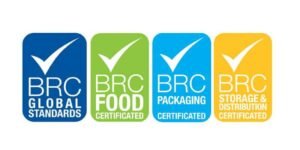
-
Good Manufacturing Practices (GMP):
Verification of the consistent manufacturing and control of products covering all aspects and as per quality standards without synthetic chemicals or genetically modified organisms (GMOs).
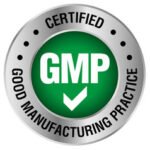
-
Halal Certification:
Verification of rice manufacturing under Islamic laws and regulations as permissible for Muslims to consume.
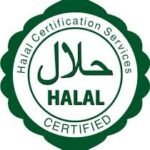
-
U.S. Food and Drug Administration (USFDA):
Ensuring the quality, regulatory, and safety standards for selling rice products in the United States.
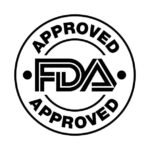
-
GlobalGAP:
This certificate demonstrates a commitment to sustainable agricultural practices. Moreover, it ensures that rice is produced and adheres to environmental regulations in the fight against green emissions. Additionally, it entails waste management issues and the prudent use of chemicals that could inhibit growth or prove catastrophic to the environment.

-
KOSHER Certification:
Ensuring the rice meets the standards of Jewish dietary laws, especially for those following a kosher diet.
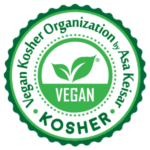
-
Vegan Certification
With the growing demand for plant-based products, the Vegan certification is crucial for businesses that cater to vegan consumers. It verifies that our products contain no animal-derived ingredients. Vegan certification ensures that our rice meets the dietary requirements of vegan consumers, expanding our market reach while aligning with ethical and environmental values.

-
Food Safety and Standards Authority of India (FSSAI):
It’s a regulatory body in India to verifies the safety standards of manufacturing food, its selling, and distribution in India.
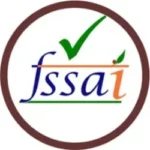
-
Pakistan Standards & Quality Control Authority (PSQCA):
Ensuring the product’s compliance with all relevant PSA regulations as per Pakistani Government standards, including food hygiene regulations, proper packaging, and the adaptation of the standard.
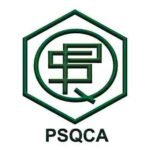
-
Gluten-Free Certification
The Gluten-Free certification is important for consumers with celiac disease or gluten intolerance. It ensures that products are free from gluten contamination.
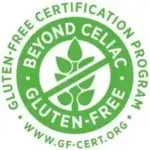
Measures to Take to Comply in the Production of Rice
Regular Audits and Inspections:
Regular audits and inspections, both internal and external, can easily detect compliance-related problems. Ultimately, they help to maintain the quality.
Employee Training:
Compliance workplace learning is important because it ensures that employees are acquainted with the firm’s mandatory compliance agenda. This means employees’ awareness of the standards and how to apply them in their work.
Quality Control Measures:
Measures such as strict quality control enable the organization to develop high standards in its daily business. This includes product tests on raw materials, audits during production, and tests on the final products to check if they are fit to be sold to consumers.
Sustainability Practices:
Justifying sustainability practices in manufacturing processes enables environmental compliance among manufacturing firms. These practices include ecological conservation by using environmentally friendly packaging and eliminating waste.
The renowned third-party inspection companies Cotecna, BVQI, Eurofin, and SGS specialize in verifying the quantity, quality, and weight of products like rice. Before shipment at the loading port, reliable and transparent verification and inspection ensure compliance with the importing country’s rules and regulations. Ultimately, these checks help to avoid any disputes/rejections at the importing port without any extra cost. Above all, a third-party inspection service ensures compliance, trustworthiness, and convenience, looping a cost-effective and reliable process for global buyers.
Benefits of Being a Complianced Rice Manufacturer in Pakistan
Being a compliant rice manufacturer in Pakistan enjoys several benefits:
Enhanced Product Quality:
It maintains the trade standards in production, so the quality of the rice produced is good. As a result, it improves product quality and naturally benefits the customers.
Increased Market Access:
Adherence to international standards has always been known to create new market opportunities. As a result, it makes exporting rice to countries with high-quality standards easier.
Reduced Legal Risks:
It also helps to prevent legal complications that would have arisen if one had violated the law. It assists in refraining from penalties and fines imposed on organizations that have not met the set compliance standards.
Improved Brand Reputation:
Compliant rice manufacturers in Pakistan work on commitment and thus create credibility. Consumers and partners exercise a preference over business organizations that focus on the quality and safety of their products.
Challenges Faced by Compliant Rice Manufacturers
Despite the benefits, compliant rice manufacturers face challenges:
Cost of Compliance:
Compliance can be costly because organizations have to spend a lot of money to meet the standards. However, this might mean that compliance costs a lot of money, which has to be invested in new technologies and processes that enable organizations to meet the regulation requirements.
Up-to-Date with Regulations:
In this context, it is important to note that regulations may change from time to time. So, it is necessary to stay up to date, maintain changes according to recent standards, and always guarantee compliance.
Training and Development:
Offering workers training can be time-consuming and costly. But it is crucial for compliance purposes. As for the nature of the transaction, yes, it is complex.
Technological Advancements:
Technology enables a sample of the advances in compliance practice. Technological advancement in the industry enhances the use of technologies in checking quality by increasing the rate of monitoring and ensuring no relaxation in steering the company towards quality.
Increased Focus on Sustainability:
Further compliance requirements are expected to center on the utilization of ecological solutions and the conservation of the environment.
Enhanced Traceability:
New features in traceability systems enable better tracking of rice from the point of production to the consumer, improving transparency and conformity to safety requirements.
Key Complianced Rice Manufacturers in Pakistan
Waqar Rice Mills
As the biggest player in the rice industry, Waqar Rice Mills is a compliant rice manufacturer in Pakistan, focusing on premium quality basmati and non-basmati rice. The company is ISO and HACCP certified, ensuring top-tier quality and food safety. With Halal certification, WRM’s products are suitable for Muslim-majority countries. In fact, Waqar Rice Mills, as a top Pakistani manufacturer, is setting benchmarks in quality, compliance, and sustainability.
Exporting long grain and well-cleaned, graded, textured, inspected, flavored, aromatic, and top-quality rice under the supervision of professionals and experts. Our state-of-the-art facility certifies that rice production is not only premium but also ethical, with rigorous quality control. Moreover, its top-rated international brands, Ocean Pearl & Waqar Rice, are leaders in making WRM a top rice exporter in Pakistan, as per the Rice Exporter Association of Pakistan. Contact world-renowned Manufacturers & Exporters today. Call us at +92-300-8999999 for inquiries.
Conclusion
Pakistani rice manufacturers must be compliant in their functioning to not only boost their reputation but also help grow the global import and export market. Additionally, compliance guarantees the production of high-quality goods, better market presence, and brand image. However, the consequences of compliance are huge; therefore, organizations should ensure that they meet these stringent quality, environmental, and safety standards. In the future, particularly regarding compliance with changing industries, new trends and technologies will be important to the business’s longevity.

